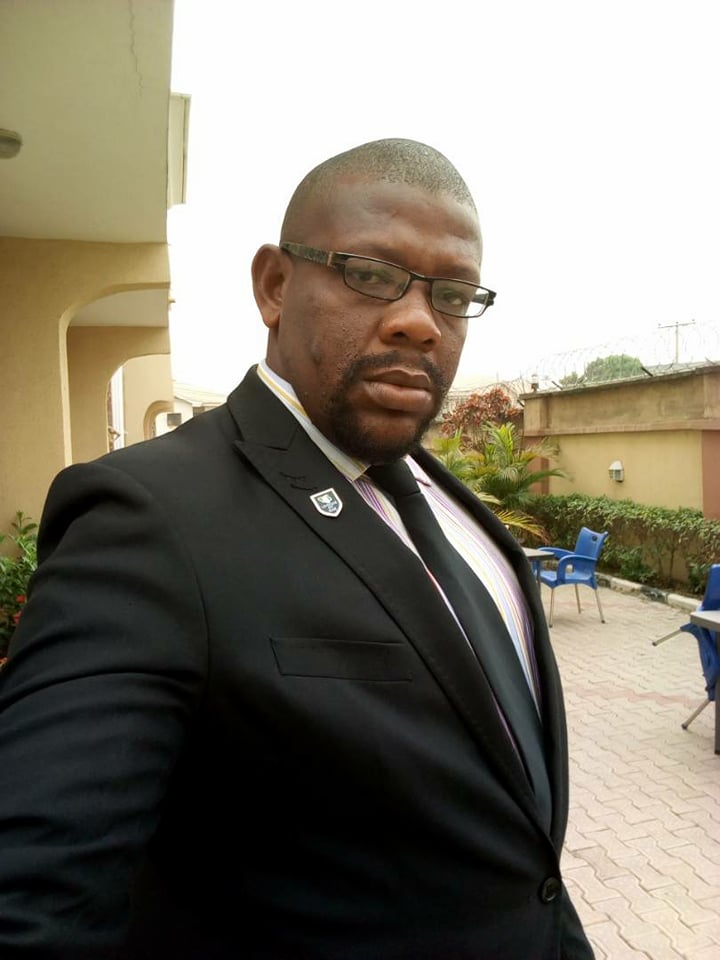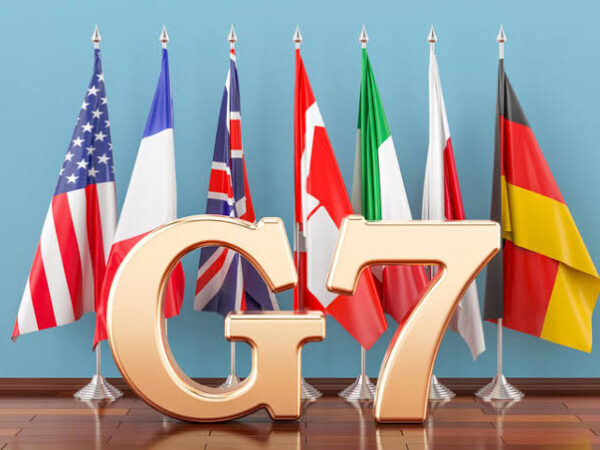One hundred years ago Christopher Alexander Williams could throw a law book or two into his briefcase and appear in court for months, his portable library sufficient support for any case that arose. In the early days of legal practice in this country a lawyer could make do with a single shell of law books, the statutes of the Federation and his state of practice and perhaps few reported decisions.
Today we are practicing in a world where a lawyer could have a big resourceful library in the palm of his hands, with the help of technology. The legal practice and legal administration have improved positively due to new technological innovations. The corporate lawyer sings praises for goggle, while the practicing lawyer adorns legalpedia. Lawyers can now research specifically and timeously, not having to waste energy in search for an opinion or decision. I do not assert that any deviation from a profession old tradition threatens its existence. I assert that in todays digital world the way lawyers conduct themselves in unauthorized advertisements and soliciting professional work directly and indirectly on the social media are both activities which are capable in their nature of threatening the existence of the legal profession in the future.
It is an aphorism that one cannot have a game without rules and that if there were no rules there wouldnt be any game. In legal practice the lawyer is guided by the Rules of Professional Conduct (herein referred to as ‘‘RPC’’). The RPC is like the holy book of the Lawyer in Nigeria. We cannot have a reputable profession without the RPC. The RPC is used to enforce the integrity of the legal profession as something that is essential to the practice. The directions of RPC are binding on all legal practitioners in Nigeria unless set aside on appeal. The RPC was made pursuant to Legal Practitioners Act, established by law, with a mandate to guide lawyers in Nigeria as to what is or is not unprofessional. It also guides on what action or omission by a legal practitioner amounts or does not amount to misconduct.
That by virtue of Rule 39 (1) RPC, 2007 it provides as follows, (1) subject to paragraphs (2) and (3) of this rule a lawyer may engage in any advertising or promotion in connection with his practice of law, provide it -(a) is fair and proper in all the circumstances and (b) complies with the provision of these Rules. The key word in the provision above is “if a lawyer engages in any advertisement he must do it in fair and proper circumstances and the said advertisement comply with the provisions of the Rules. In fair and proper circumstance means that whenever a lawyer is engaged in advertisement it must comply with Rule 39 (2) (3) & (4) RPC.
Rule 39 (2) RPC provides that, a lawyer shall not engage or be involved in any advertising or promotion of his practice of law which (a) is inaccurate or likely to mislead (b) is likely to diminish public confidence in the legal profession; or the administration of justice, or otherwise bring the legal professional in disrepute: (c) make comparison with or criticizes other lawyers or other professions or professionals (d) includes any statement about the quality of the lawyers work, the size or success of his practice or his success rate (e) is so frequent or obstructive as to cause annoyance to those to whom it is directed. Notwithstanding the provision in paragraph (1) of this rule, a lawyer shall not solicit professional employment either directly or indirectly by (a) circulars, handbills, advisement, through toots, or by personal communication or interview (b) furnishing, permitting or inspiring newspaper, radio or television comments in relation to his practice of the law. (c) procuring his photograph to be published in connects with matters in which he has been or is engaged, or concerning the manner of their conduct, the magnitude of the interest involved or the importance of the lawyers position (d) permitting or inspiring sound recording in relation to his practice of law (e) such similar self-aggrandizement See Rule 39 (3) RPC.
It is vivid that Rule 39 (2) & (3) RPC are set of rules prohibiting advertising or soliciting for professional employment either directly or indirectly by a Legal Practitioner in Nigeria. Rule 39 (4) RPC is the foundation for any kind of advertisement in a lawyers practice and also laid down the guideline of how to advertise or how not to advertise. The Rule provides that, “Nothing in this rule shall preclude a lawyer from publishing in a reputable law list or law directory, a brief biographical or informative data of himself, including all or any of the following matters (a) his name or names of his professional association (b) his address, telephone number, telex number, e-mail address, etc. (c) the school, colleges or other institutions attended with dates of graduation, degree and other educational or academic qualification or distinctions; (d) date and place of birth and admission to practice law (e) any public or quasi-office, post of honour, legal authority, etc. (f) any legal teaching position (g) any National Honour (h) membership and office in the Bar Association and duties thereon; and (i) any position held in legal scientific societies. Rule 40, 41 and 42 RPC provide other different ways a lawyer can also advertise. But what I noticed is that RPC did not specifically provide for lawyers activities on social media unlike the similar provision guiding the Indian lawyer but with exception that nothing stops an Indian lawyer from setting up a website. In Rule 39 (4) (b) included that word etc., ETC. is an abbreviation for etcetera, a Latin expression meaning and other things or and so on but draftsmen commonly use it when they cant think of anything else to put on the list, but know therere other things that can go with the list. Would it be true if one stated that website and social media are other things that can go with the list under rule 39(4) (b) RPC.
If so, the only question now is social media legal profile or legal profile on the website in Nigeria amount to law list or law directory having in mind the Latin dictum – Omnis difinito in jure civili periculosa est parum est enim ut non subverti posit meaning that every definition of civil law is dangerous, for there is very little in the civil law that cannot be over thrown, or there is no rule in the civil law which is not liable to some exceptions. Osborns concise law Dictionary 18th Edition 1999, Pub. By Sweet & Maxwell defined law list as an annual publication containing list of barristers, solicitors and legal executives. The inclusion of a solicitors name there is prima facie evidence that he holds the prescribed certificate for the current year.
On the other hand social media is a collective of on line communications channels dedicated to community based input, interaction, content sharing and collaboration. Wikipedia, an on-line encyclopedia defined social media as computermediated technologies that facilitate the creation and sharing of information, idea, career interests and other forms of expression via virtual communication and networks. Social media differ from paper-based media (i.e. Magazines and Newspapers) or traditional electronic media such as television broadcasting in many ways including quality, reach, frequency, interactivity, viability, immediacy and permanence. Social media operate in dialogic transmission system (many sources to many receivers). This is in contract to traditional media which operates under a monologic transmission system (one source to many receivers) radio station which broadcasts the same programs to an entire city. The different types of social media in my own understanding are websites and applications dedicated to forums, micro blogging, social network, social book marking, social curation and wikis i.e. Facebook is a popular free social networking website that allow registered users create profiles, upload photos and video, send messages and keeping torch with family, friends and colleagues. LinkedIn a social networking site designed specifically for the business community. The goal of the site is to allow registered members to establish and document networks of people they know and trust professionally. Many a times these multinational companies call themselves tech-companies but in the actual sense they are media houses racking in billions from advertisements.
For lawyers that are content contributors, the benefits of participating in social media has gone beyond simple social sharing to building a reputation and bringing in career opportunities and monetary income. These social websites have billions of users. As an observer, I have noticed a range of positive and negative impacts technology has on lawyers. Technology can help one improve ones sense of connectedness with real or on line communities. Technological innovations can be an effective communication tool for lawyers, courts, justice administration, advocacy group, etc. On the other hand, concerns have been raised about possible links between the use of modern technology and soliciting professional employment directly and indirectly, the issue of advertisements that doesnt comply with Rule 39 RPC, inspiring bloggers and making comments in relation to practice of the law and posting contents of self – aggrandizement.
The Metro Lawyer an on-line portal, published on the 4th day of October 2017 an article with Caption: Lawyer Floats 24 Hrs Free On Line Legal Services Platform. The on-line portal stated and I quote that a young legal practitioner and powerful game changer is charting to increase the awareness level about the justice system in Nigeria by taking service to door steps for free. That he floated an
initiative called Legitng.com which taps into the present digital age.” This conduct above is what Rule 39 (2) (D), (3) and (4) RPC frowns at. On another note a controversial Lawyer keeps posting contents directing his followers in an on-line forum on Facebook known as Due Process Advocates (DPA) of about Two Hundred and Fifty Eight Thousand members to pay a registration fee now even if the member doesnt have immediate legal issues.
All these misconducts and many more go on within the social media daily and it seems that RPC is not on the driver’s seat or maybe the said situation has not being brought to the notice of the Legal Practitioners Disciplinary Committee (LPDC) . The same way time affects everything and anything name it, is the same way time affects the law. It is like the story of analogue and digital. Most rules of RPC are analogue, operating in a digital world. The Rule should be repealed with one that will properly handle the explosion of technological innovations. My point is not that a lawyer should not personally use social media. The idea that social media is free makes it a fair ground for all competitors. When a lawyer is engaged in private activities on the social media that would not bring the profession to disrepute, the RPC will not apply. But when you represent yourself as a lawyer or post a content that carries the intention that it is posted by a lawyer, then Rule 39(4) RPC applies.
For RPC to handle the social media explosion, adequately we must realize that answers to new legal problems, must be found by consideration of present social needs rather than dwelling in the wisdom of past and history. That websites even though they are not mentioned specifically in Rule 39, however in the digital age the use of social media by a lawyer to my understanding doesnt violate Rule 39, but only to the extent that the website will only give basic information by compiling with Rule 39 (4) RPC, as it applies to lawyers brochures and law directives. Any content that does not fall within the scope of Rule 39(4) RPC runs afoul of the said Rules. So the repeal of RPC is inevitable because we need pro-active decisions in the legal profession accompanied by development in technology. Technology and globalization have changed the rules across many industries law included. With technology the legal world no longer operate as an independent island ruled by lawyers. The society and the client have understood that law is a profession and a business. The legal profession is experiencing unprecedented change because, society, clients – not lawyers decide what is legal and what should be given to a lawyer.
Law is both a profession and a business, and lawyers will always have it both ways. The profession must defend its regulations, and lawyers must protect the core tenets of the profession which the society intend to destroy by all means necessary. But law is also an enormous global business, so lawyers must upgrade their attitude to be business minded in the dispensation of justice. It is affirmative that laws firms generally resist digitization that could streamline legal delivery, cut cost and make legal service accessible to millions of Nigerians. Legal culture is rooted in precedent, not innovation. This needs to change, but the innovation should not seek to disrupt the core tenets of the profession. Innovation should be seen in the differentiated expertise, skills and judgement required for legal matters. The legal profession is now moving from a labour intensive industry where only lawyers perform all legal works to a digitized world where legal expertise is enhanced by technology and process to provide faster, better, and cheaper solutions to legal issues. In the digital marketplace, lawyers work side by side with other professionals, para professionals and machines.
There is an urgent need to amend the RPC in order to specifically provide for misconducts that occur on the social media or occasioned by technological innovations. The legal community has the responsibility to amend the Rules to include social media or pronounce that RPC also covers activities on social media. The Legal Practitioners Disciplinary Committee should create a committee that monitors contents posted by lawyers that will bring the profession to disrepute. Finally, the moral and ethical point of view of RPC is to prevent lawyers from lowering the standard of the noble legal profession and the explosion of technological innovations to an extent if not checked will destroy the fabric of the legal profession.



